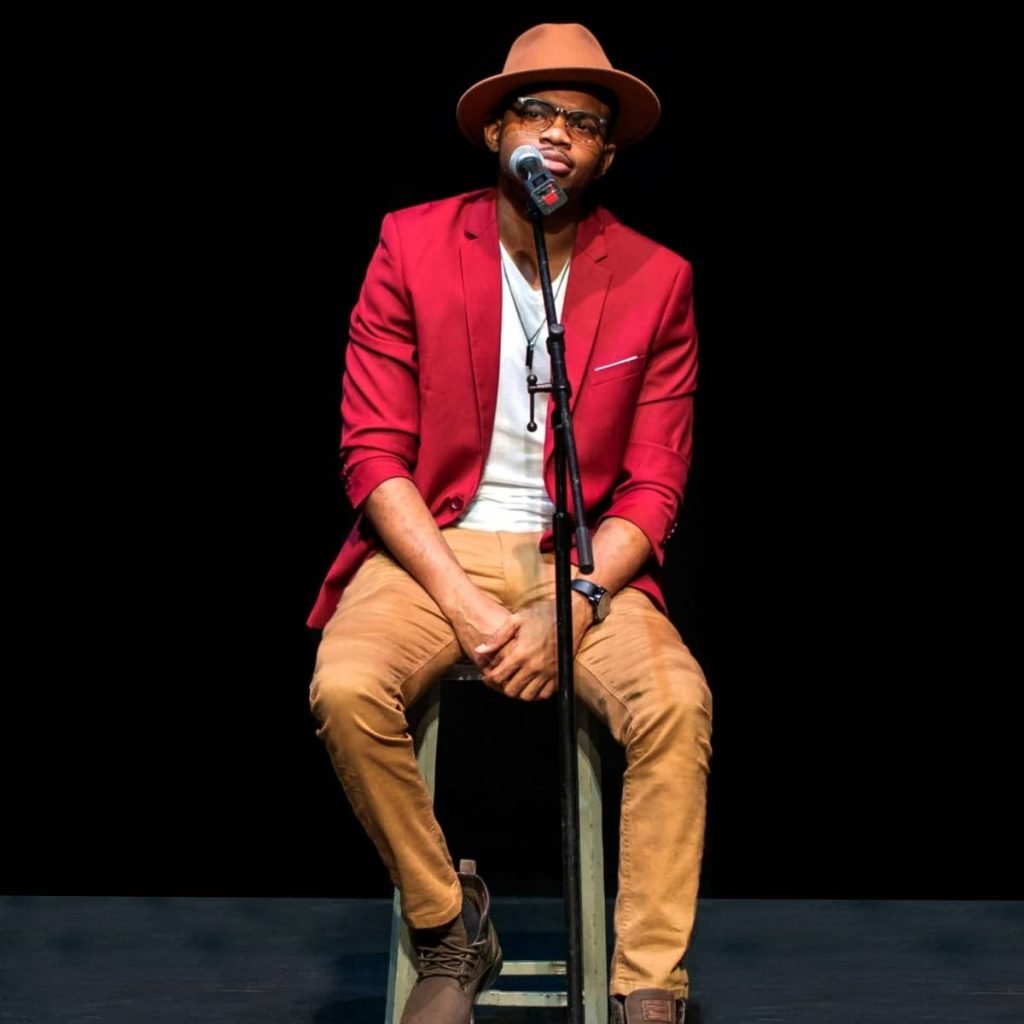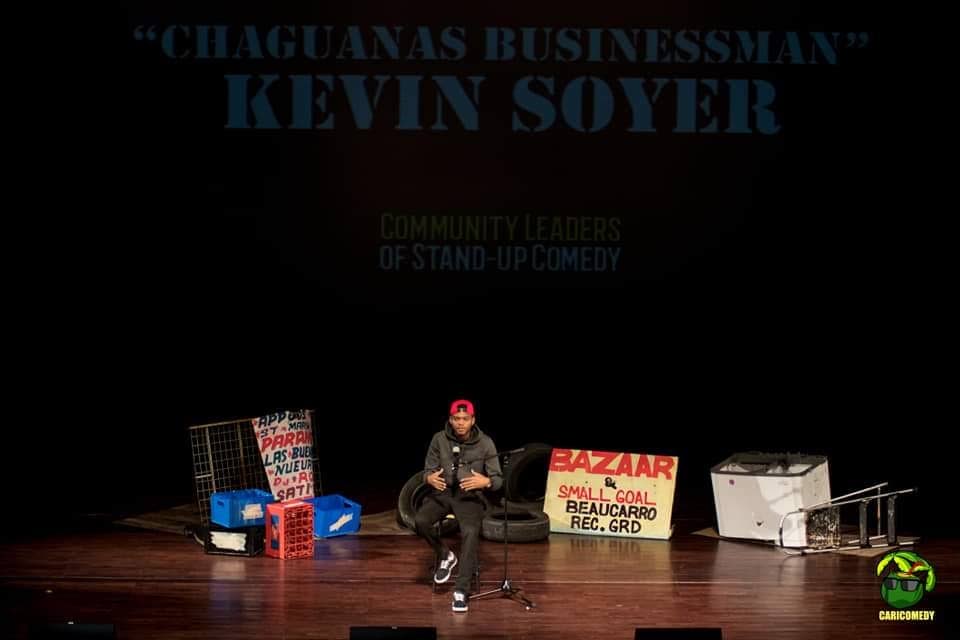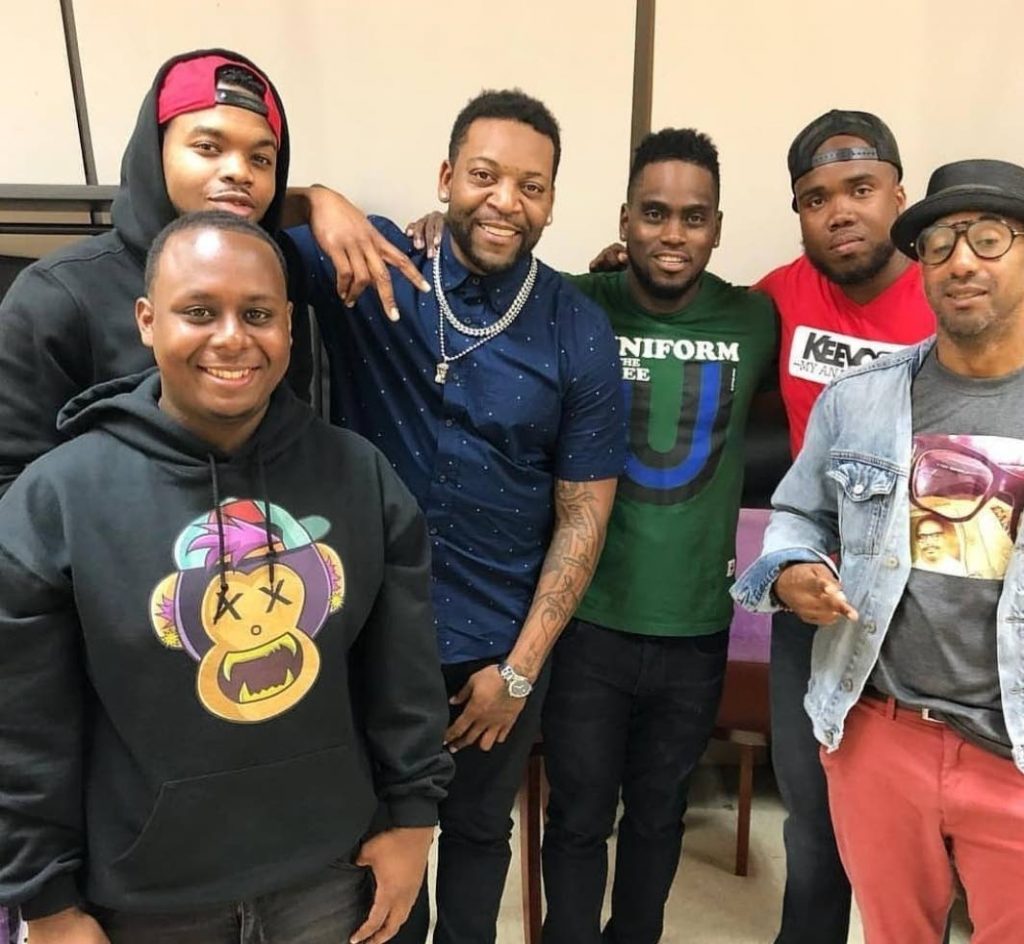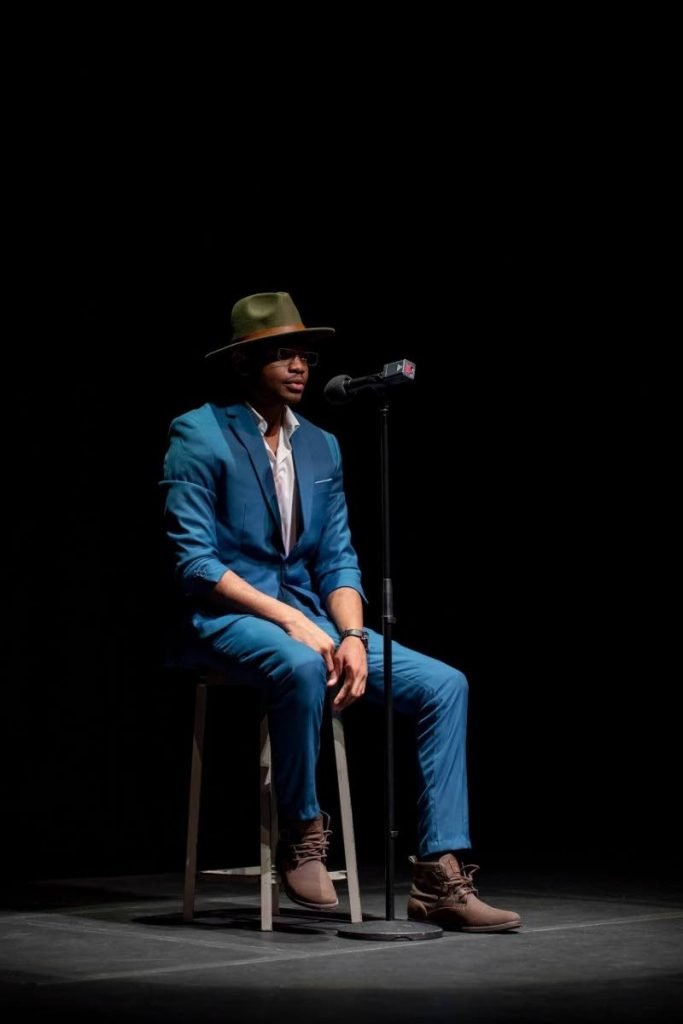Soyer’s slamming voice

KEVIN SOYER remembers performing two poems at Cocorite Government Primary School: Mud and My Daddy. He recited the poems whenever there were teacher or principal appreciation days or while representing the school at events.
He did My Daddy so many times he became known to the school’s custodians, vendors and even teachers as My Daddy. “All this time I had no father present. None. No father figure in real life. But I became My Daddy because of this poem,” he said in a phone interview with Newsday.
This is where the second-place winner of this year’s First Citizens National Poetry Slam said his love for the performing arts began.
Soyer, who has a rare spinal disorder and uses a wheelchair and crutches, has done theatre, comedy, television, playwriting, among other artforms, for the past two years.
He had friends and colleagues who read poetry and took part in past poetry slams.
His online followers encouraged him to enter the national poetry slam but competing was not on his radar. One of his friends, spoken word poet Justin Michael Barker, who also uses a wheelchair, entered the slam last year and asked Soyer to accompany him.
“So I went along with him and went through his audition process and semi-final process and stuff like that and that is where I said, 'Okay this is kind of what this is about and maybe I can give it a try. So when this year came around, I decided to enter mostly as a challenge to try something new.”

He saw it as a forum to express his feelings in a genuine way.
For him, his poems are channels for self-expression and self-examination.
Soyer passed the audition but by the time the semi-finals came around the covid19 pandemic hit and the event was postponed. During those months, civil rights movements, like Black Lives Matter, erupted which provided fertile material for him.
“All of those things happened before they rescheduled the semi-finals. So by the time the semi-finals came around, there was a lot I wanted to talk about and a lot I wanted to express, like many other poets and those were heavy themes in the semi-finals. My piece (Haunted), which kind of dealt with marginalised, black, male youth, I had that on my mind and I used the forum for that.”
The final was held virtually on September 27 during Suicide Prevention Month. Soyer’s own struggle with depression, and the many people he spoke to who also struggled with depression, inspired his piece – Breathe on purpose.

“I absolutely had to talk about that and I knew I wanted to use the opportunity to speak to people who are going through situations like that, especially in the unprecedented year that is 2020. Especially where there are so many people, creatives, who are facing extreme challenges. I wanted to speak to those people and encourage them with the opportunity and that is what I used it to do.”
The 27-year-old knows that poetry is a powerful form and a great medium to get messages across. He said many people should write and read poetry.
“There were many types of self-expression, many types of style. I would definitely advocate for youth to be involved in these things. It was a really, really great experience for me and a way you can really educate people, encourage people through a piece that is also entertaining.”
Soyer said his experiences in the arts as a boy helped him to see how his performances could bring joy to people.
In 2018, he graduated with a communication studies and theatre arts degree from the University of the West Indies (UWI), St Augustine.
It was during his years on campus that Soyer fell sick.

“In my case, I had the first year of performing, studying theatre and stuff at UWI, but then at the beginning of the second year I got sick. So I would have left school then. I was hospitalised for a year and three months. Paralysed.”
He was diagnosed with transverse myelitis, an inflammation of the spinal cord.
“I was diagnosed with that and I was hospitalised for a year and three months and was home for a while after that.”
Initially, he could not move anything but his eyes. But as soon as he was able to, he pushed to return to the university.
“When I returned to school I was in a wheelchair. I continued my communication studies degree but I was even more interested in continuing the theatre arts aspect of my degree. Initially, I was a bit worried about being rejected.
“At that point in time, I just thought, coming with a wheelchair...I knew the campus, how the Department of Creative and Festival Arts was set up and that they could not facilitate me. So I was wondering, 'how is that going to happen?' but I didn’t want to give them the opportunity to tell me no, so I registered for my courses and I just showed up and I made myself the lecturer's problem.”
Soyer said his lecturer, Louis Mc Williams, was not only expecting him but told him, "You’re not coming here to learn production support or help us with lightning but you are coming to perform."
Mc Williams also told him he was happy that he was there.
“He got me in the classes. The week I came there were steps but the next time I came back, the classroom had a ramp. The next time I came back, the dance studio had a ramp. The next time I went back, the Black Box had a ramp. They customised and renovated and made sure I was facilitated. When we had practical courses and we had to build sets, he would bring me there especially to see how a wheelchair could go through the set and he would build it to suit.
“That was one of the first stages where I saw organisers of anything try to format a space to facilitate me and that kind of thing. After leaving school, performing in the real world was quite a shock. There were times I literally, in front of audience members, going to certain auditoriums in TT, I had to kind of get myself up on the stage, drag myself up on top of the chair because there was no way for me to get on. There is no path to pass or anything.”
This is something he hopes to influence change in.


Comments
"Soyer’s slamming voice"